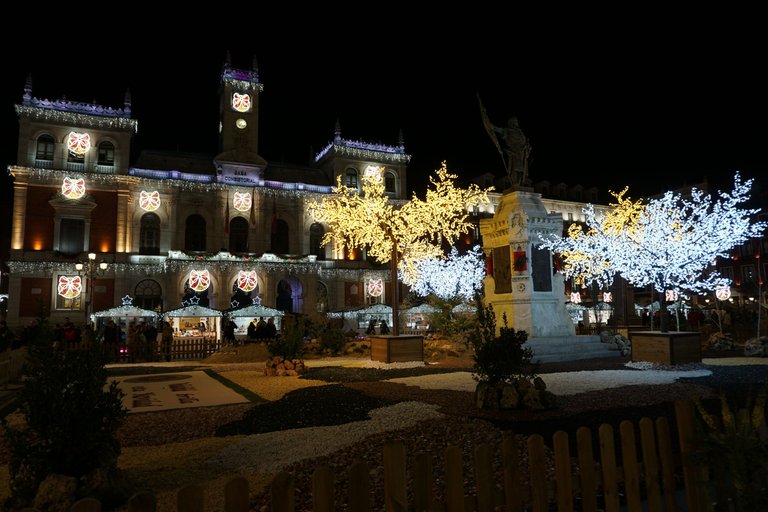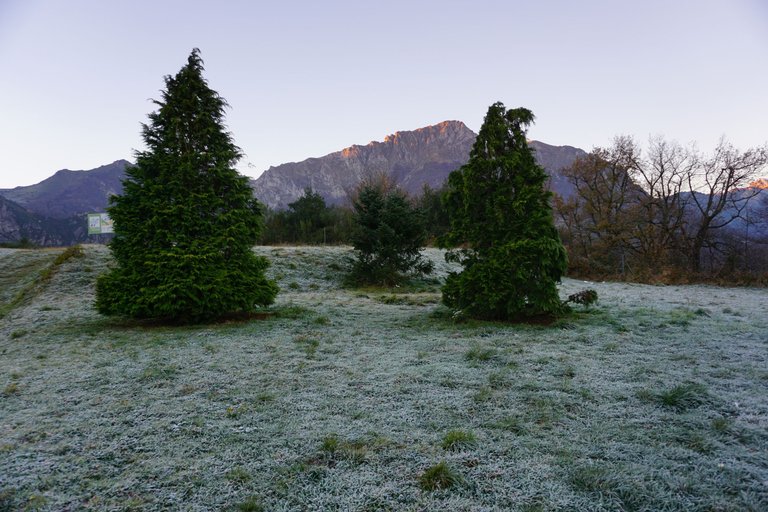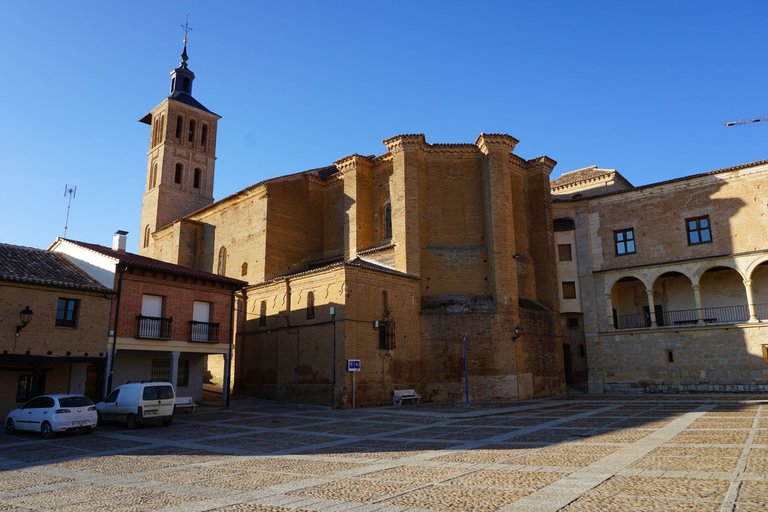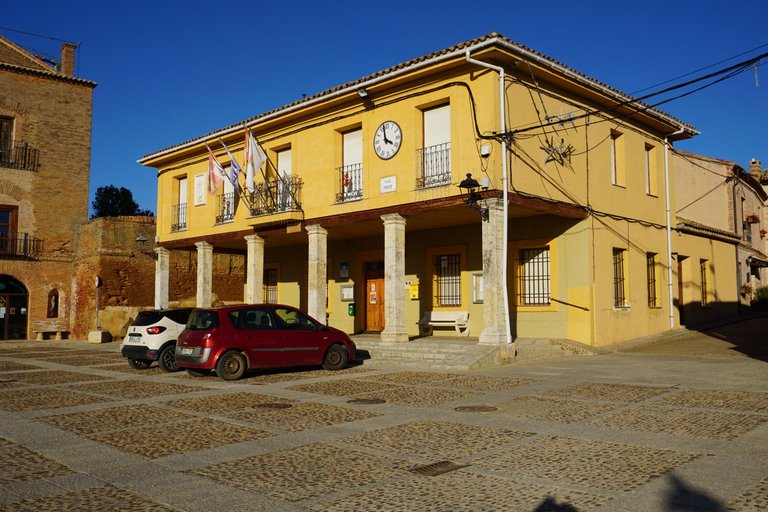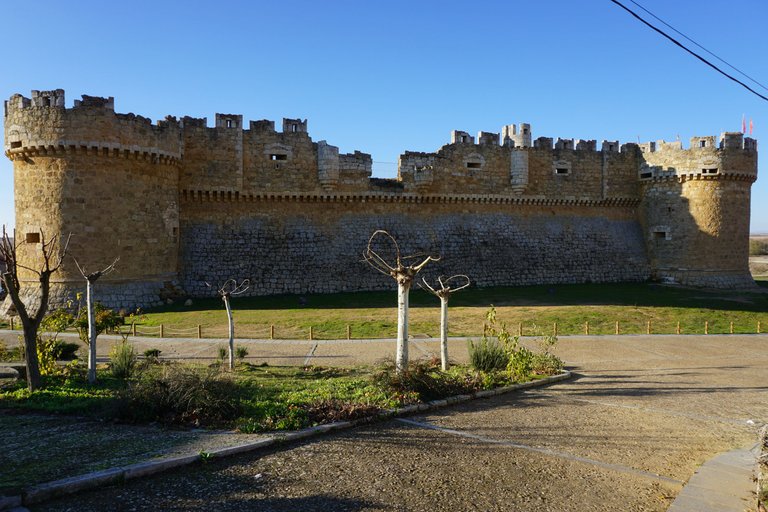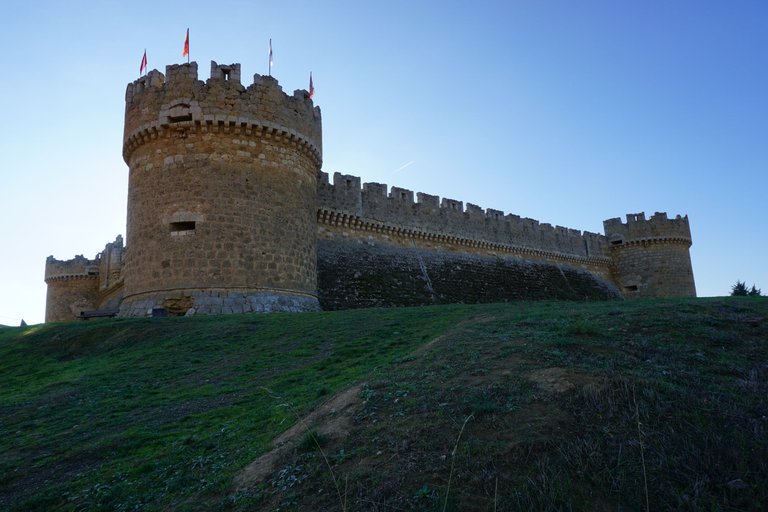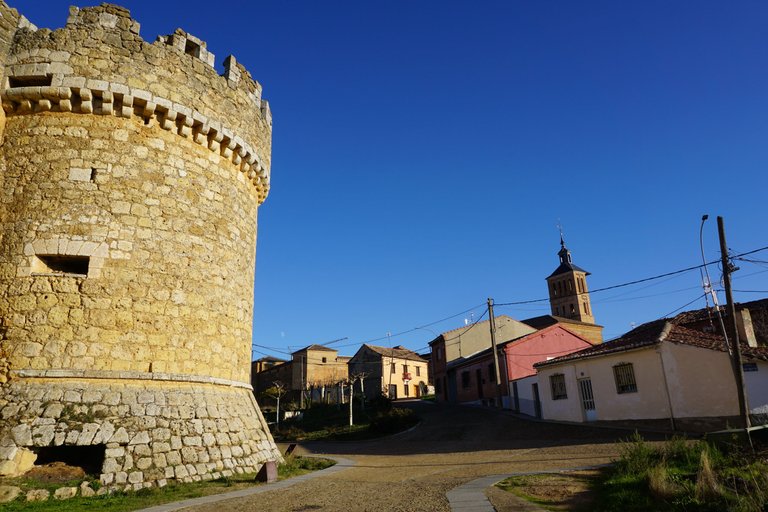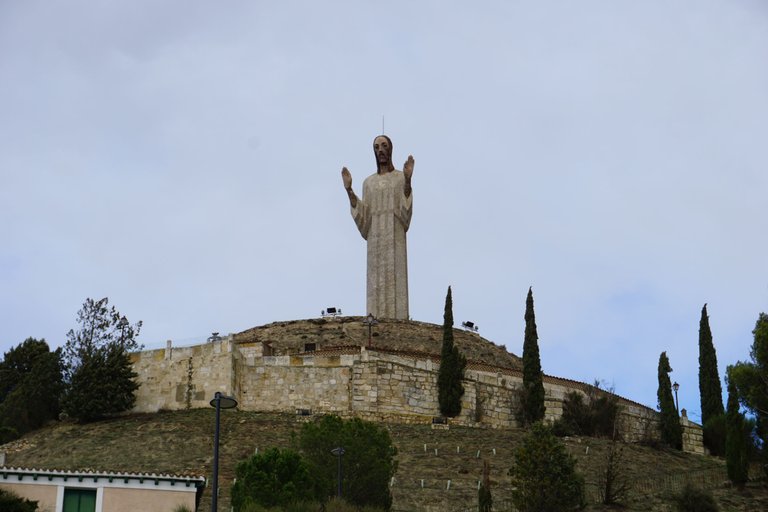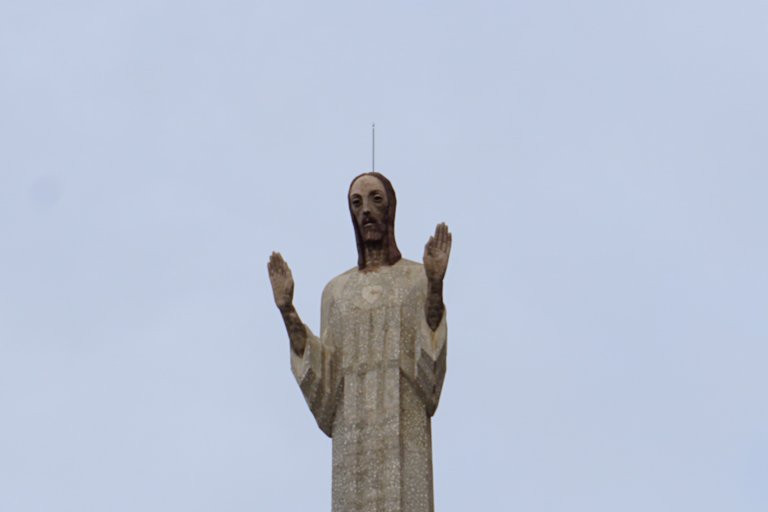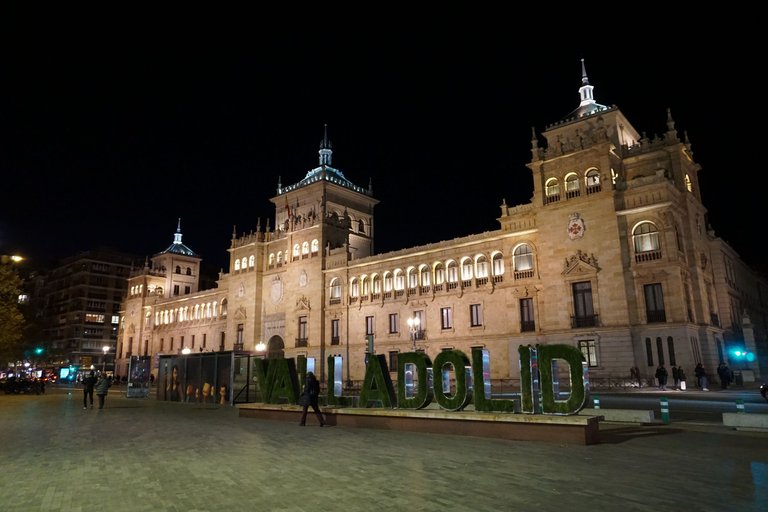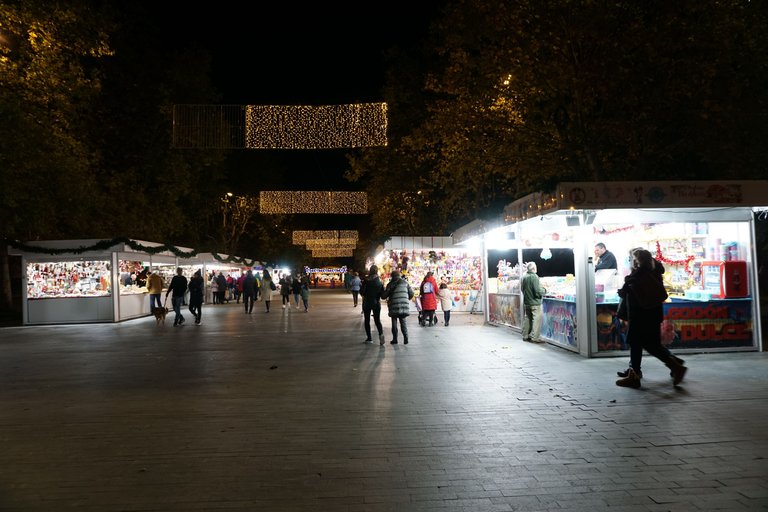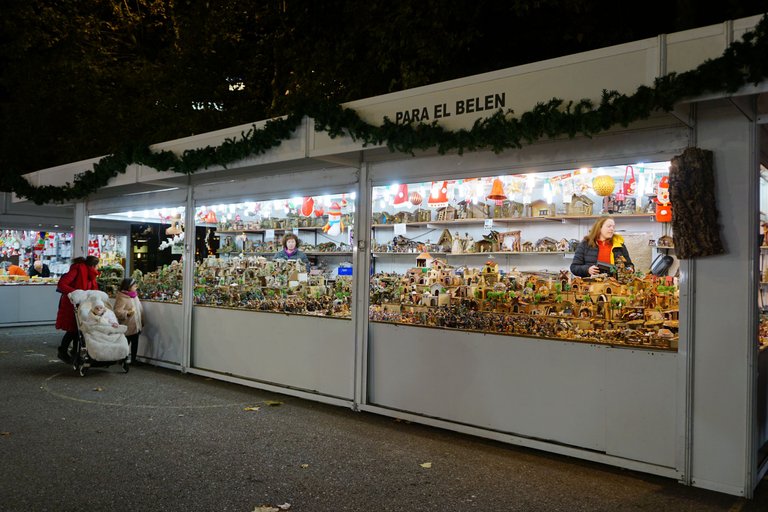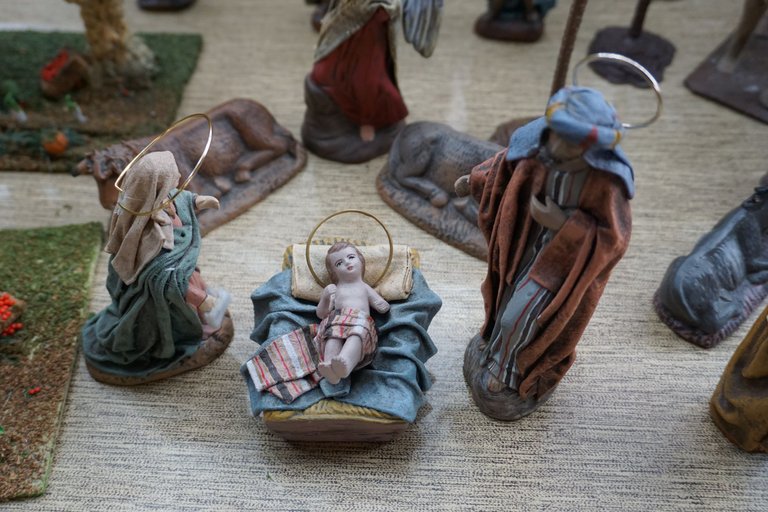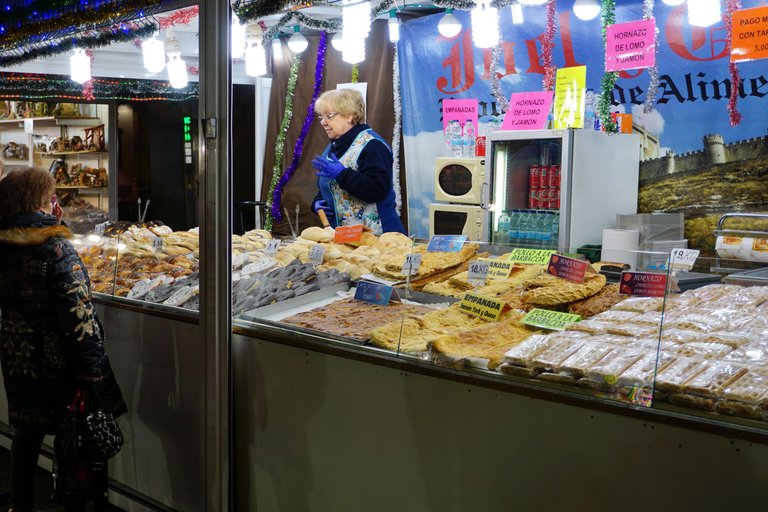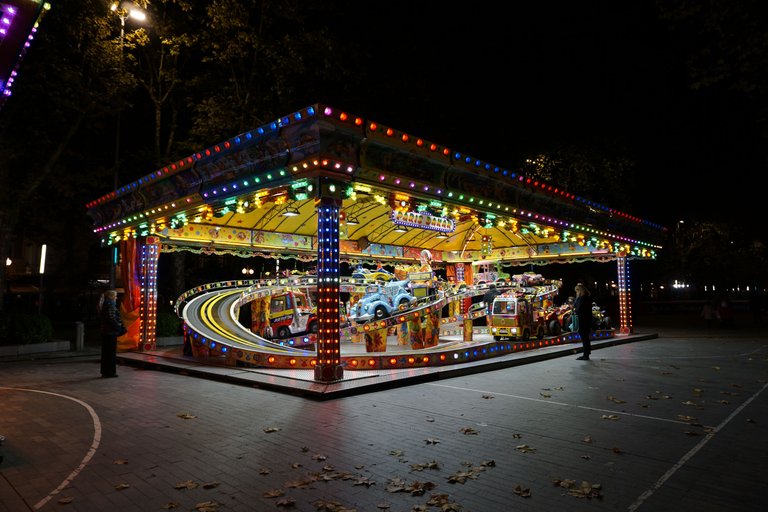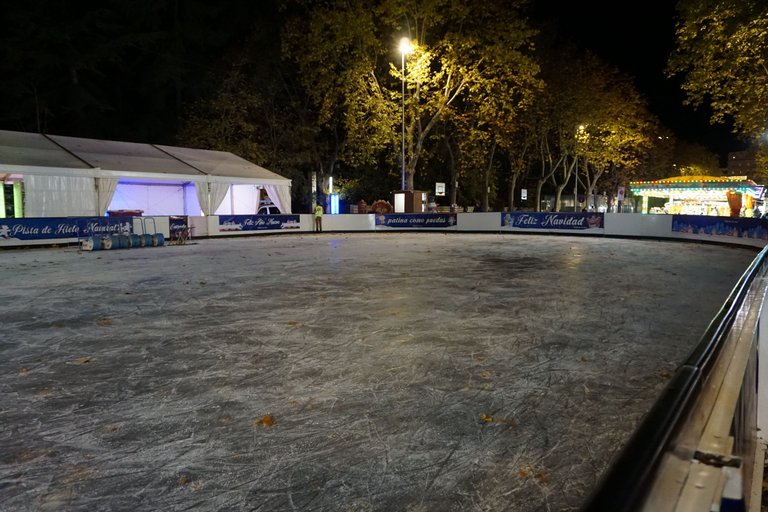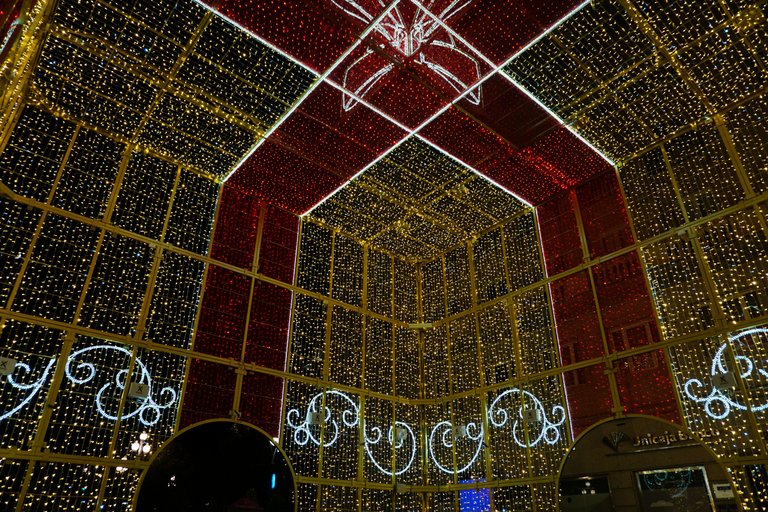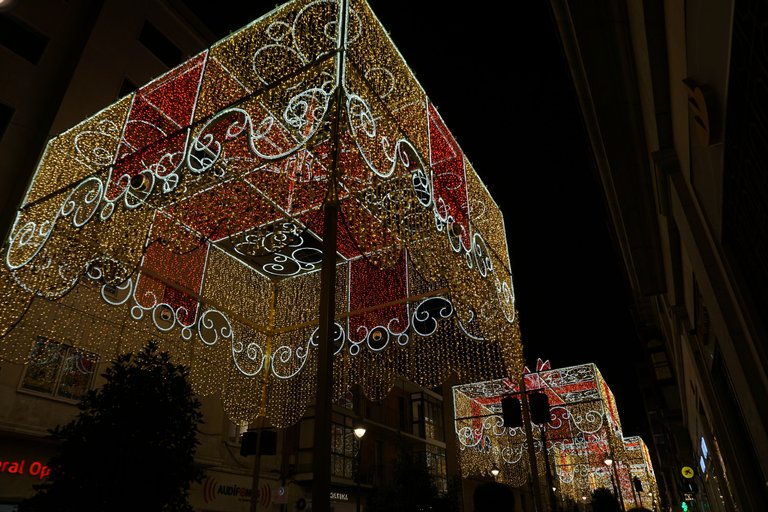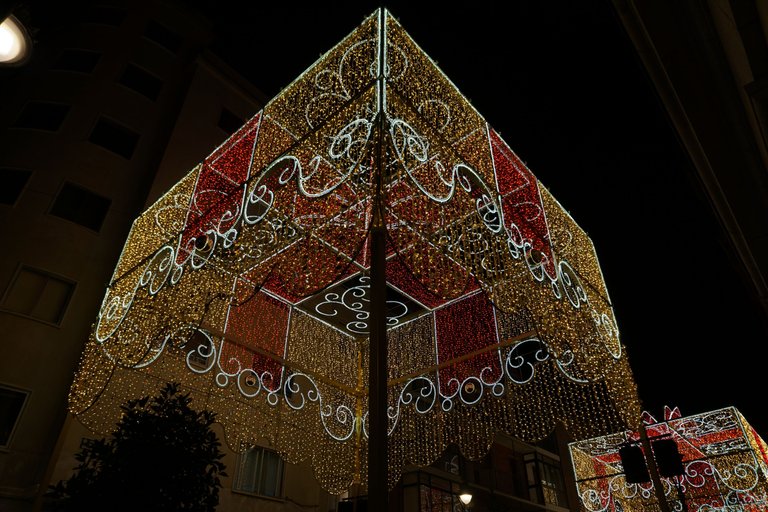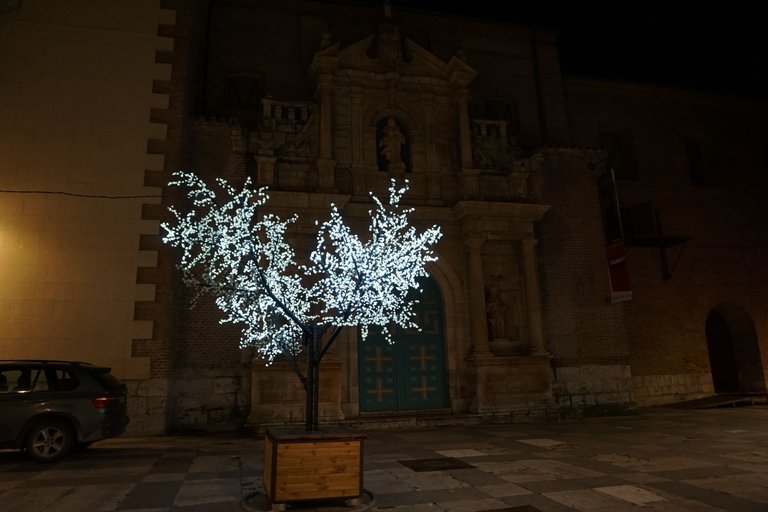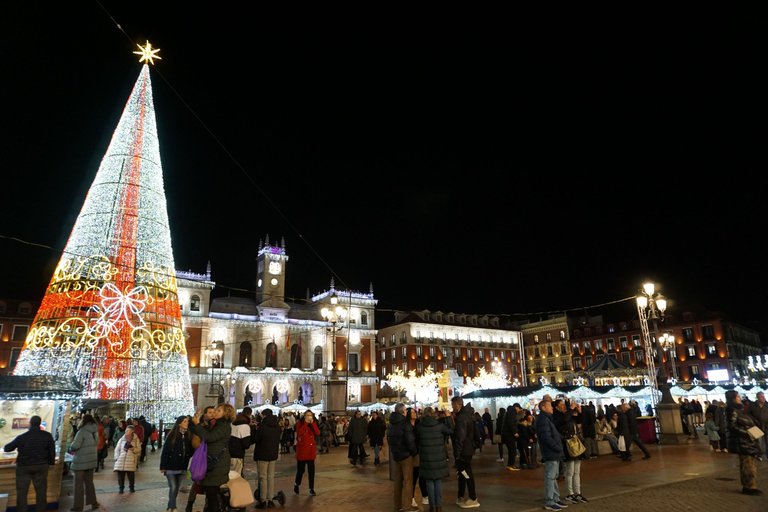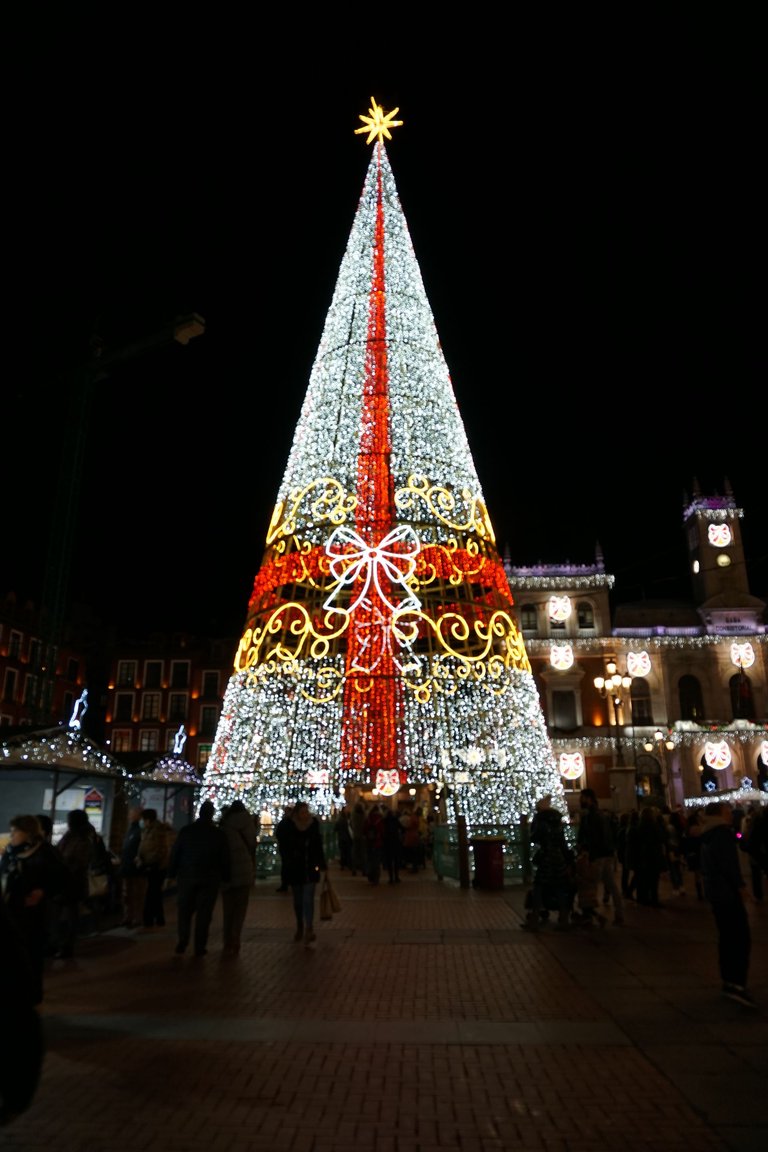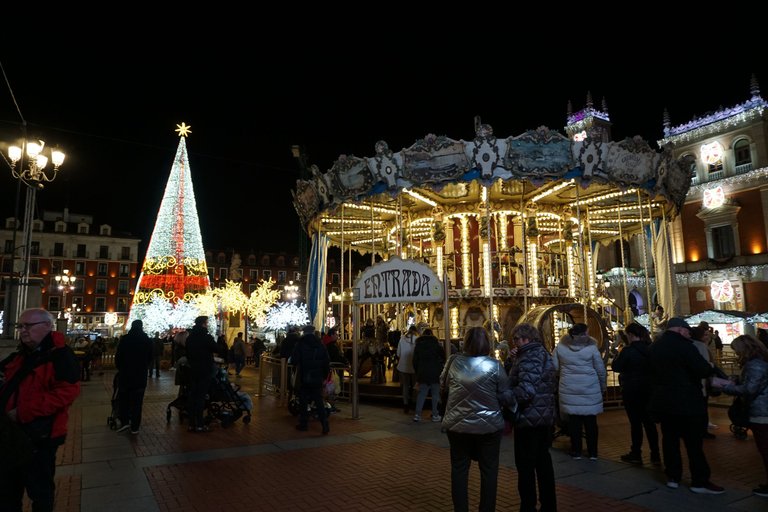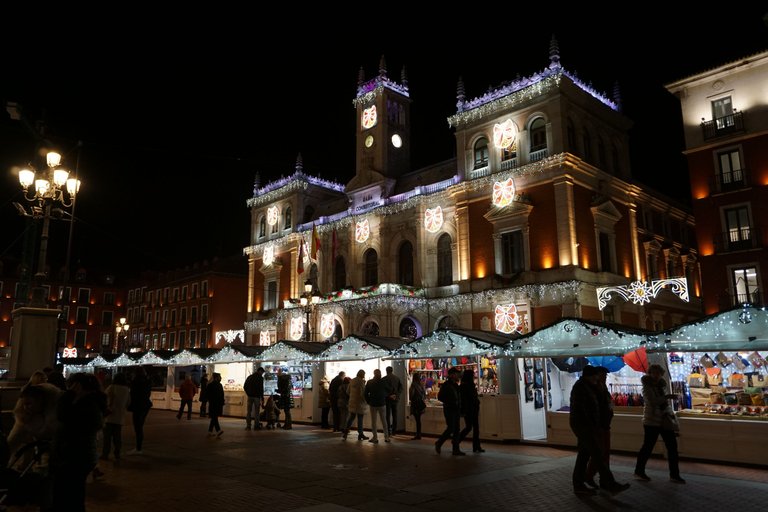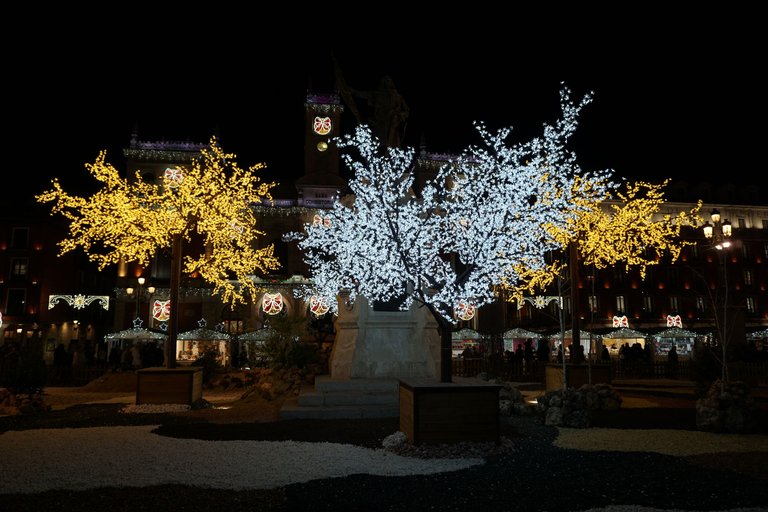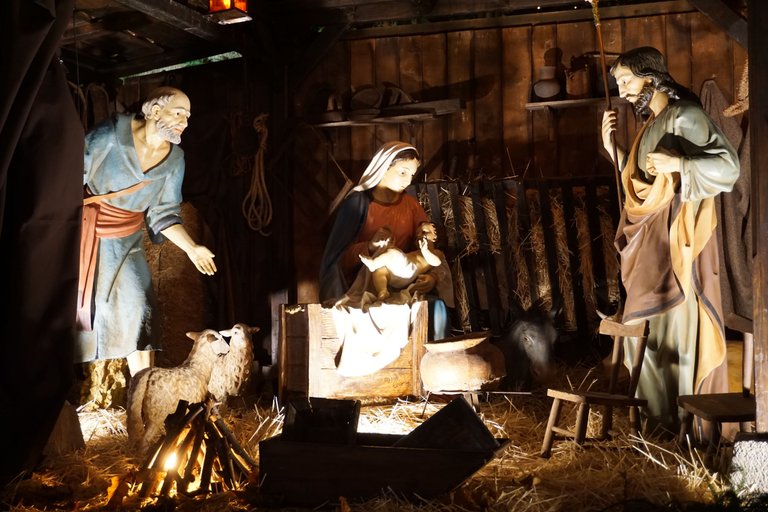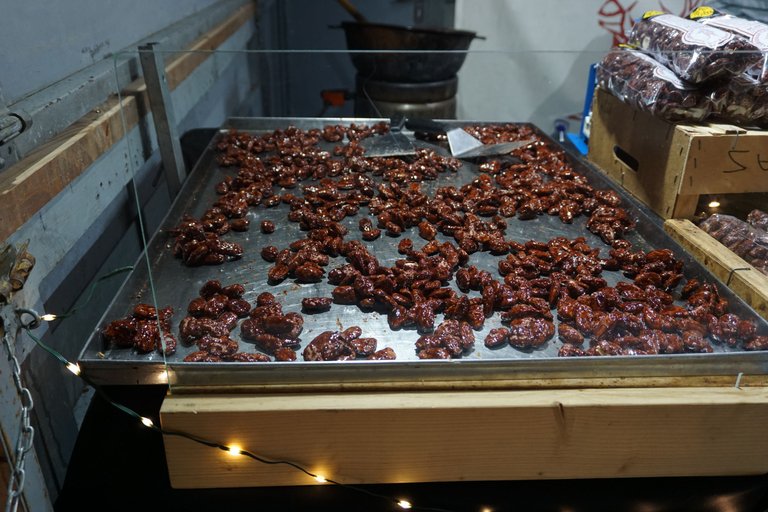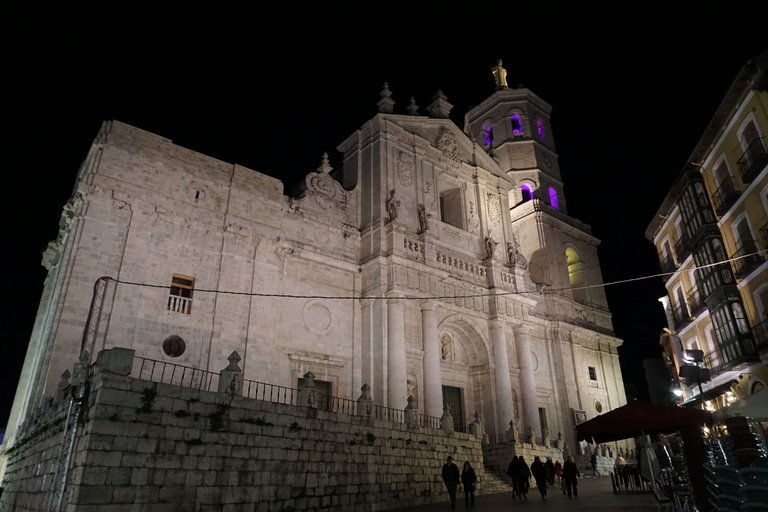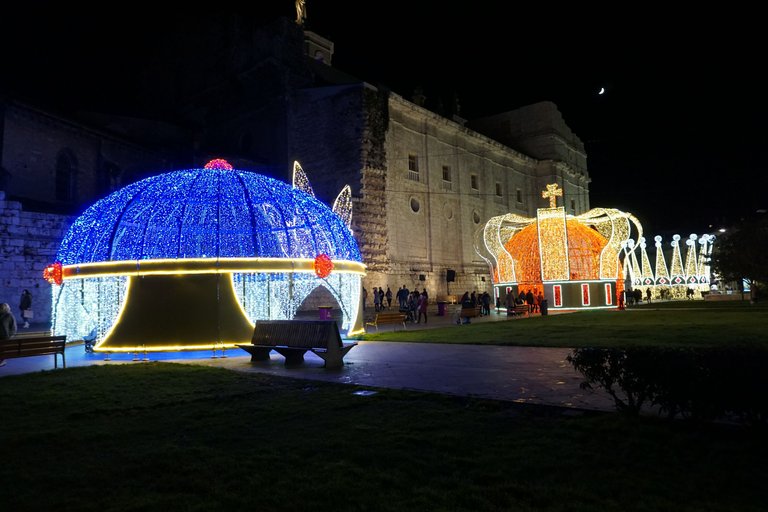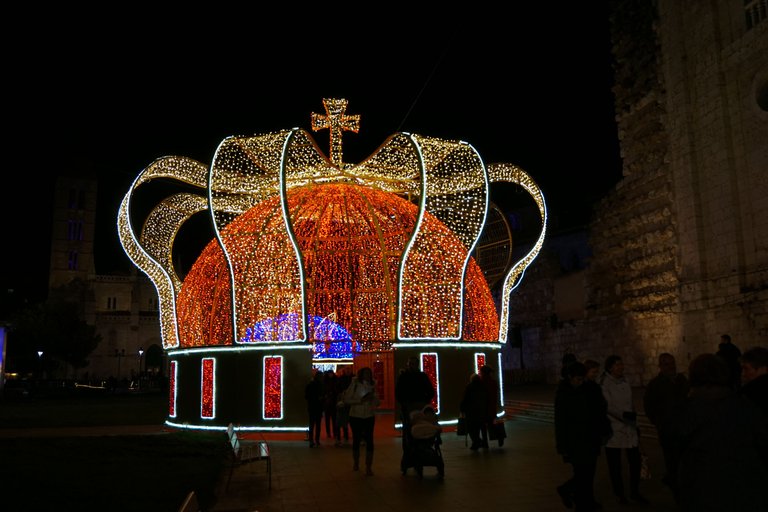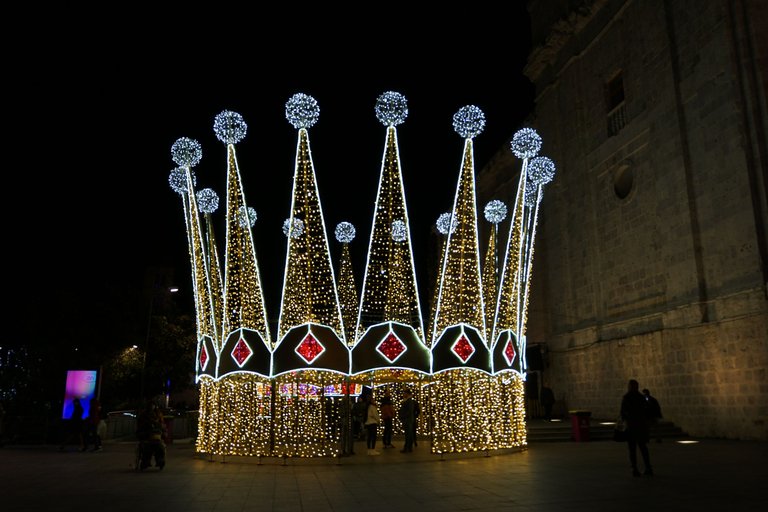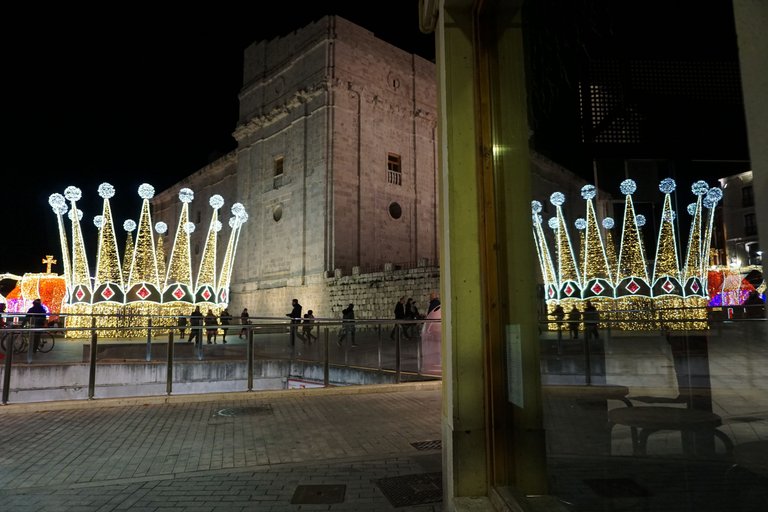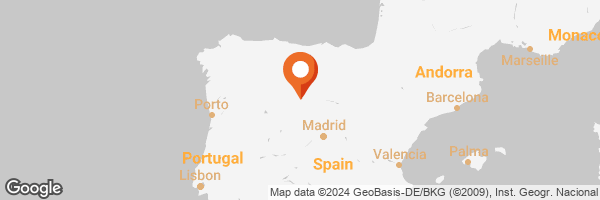English
Hello friends,
Yesterday was a public holiday in Asturias, so I was able to travel to the city of Valladolid calmly and make a couple of stops before reaching my final destination and enjoy the magical Christmas in this city.
I made the journey by road in the morning with great caution, because as you can see from one of the viewpoints next to the A-66 motorway, the cold made the frost set in the early hours of the morning.
The route was quiet, although the cold was intense and as I got deeper into the Cantabrian mountain range the snow was getting heavier, but the road was not dangerous thanks to the snow ploughs.
Grajal de Campos
As I told you my intention was to get to Valladolid, but instead of doing the routine trip I have been doing in the last weeks, this time I had a lot of time ahead of me and for this reason I detoured my way towards Palencia, stopping in a small village called Grajal de Campos.
Grajal de Campos is a small village of barely 200 inhabitants, although to tell the truth I don't think there was anyone in the village because I didn't find anyone in the vicinity of the main square and the town hall.
You may wonder why I wanted to come to Grajal, because in this village there is one of those castles that you can see from afar, but I never stop my car and today I stopped to take some pictures of this castle from the XVIth century.
I have always liked the castles in this part of Spain, many of them well preserved and I particularly like this one because of its location on a hill with large expanses of plain around it.
The location of this castle was not accidental, as it was built on the ruins of an earlier castle from the 10th century and its design as an artillery castle marked an era, as it is considered the first artillery castle in Spain with its four large corner towers.
But Grajal de Campos is more than just its castle, as it is one of those small villages in Castilla y León where one likes to lose oneself in its narrow streets that make one think that one is still in another era.
Palencia
After passing through Grajal de Campos and without being in a hurry to get to Valladolid, my route continued travelling along a regional road to the city of Palencia and specifically to the outer part of the city where the Cristo del Otero (Christ of the Otero) is located.
This great Christ is another of those attractions that I see many times from the motorway and that I had made a note to stop at on a trip to Valladolid in good time.
This Christ is one of the tallest Christs in the world at 20-21 metres high. And according to the statistics I was able to consult on the internet, it is only surpassed in Europe by another Christ in Poland.
Valladolid
The city of Valladolid in the last 30 days I can consider it my second home because I have visited it for work reasons in 3 of the last four weeks.
During my previous stay in the city, walking through the city centre, I could see that the Christmas markets and all the Christmas decorations were already being set up.
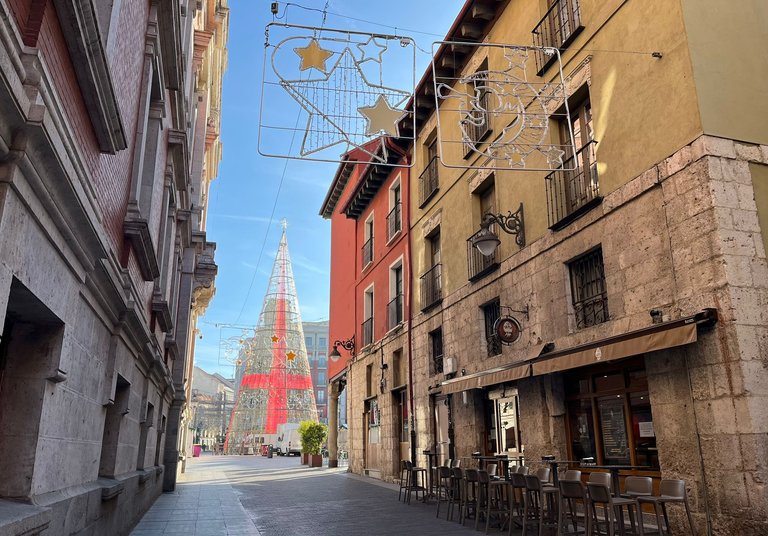
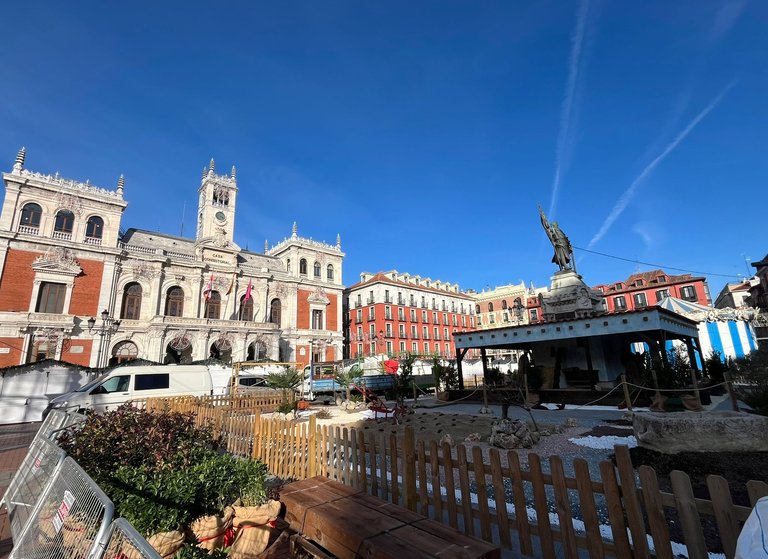
I was even able to enjoy some curious photographs of the Christmas decorations by day with the shadow I was able to photograph of this angel playing the trumpet sitting on a moon.
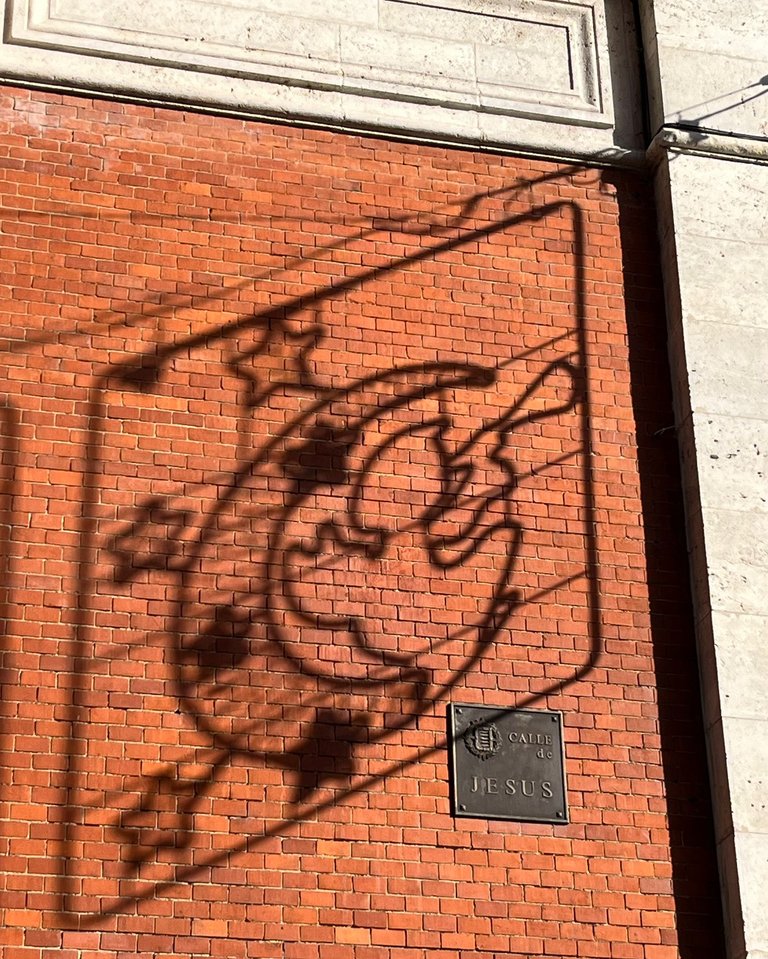
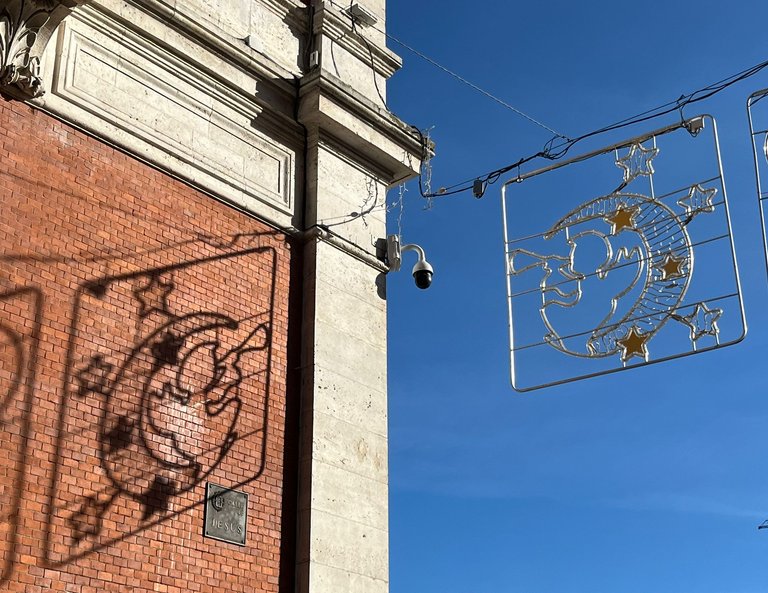
My arrival in the city was in the middle of the afternoon, and after a while resting in the hotel I went out to walk through the main streets of the city to discover the Christmas decorations in their full splendour and I started near my hotel in the Plaza Zorrilla, next to the Cavalry Academy.
There, in the middle of the square, I found a multitude of street stalls selling figurines from the nativity scene and also some typical products of the local gastronomy at Christmas time.
There was also a typical fairground leisure area with a large ice rink, although there were still no people who wanted to skate on it.
Afterwards, I retraced my steps alerted by the carol music coming from another of the nearby streets, specifically the music was coming from Santiago street with a colourful decoration in the form of Christmas presents.
At the same time, all the trees in the street were equally illuminated by hundreds of silver LED bulbs, which together with the joy of the passers-by was pure excitement at how close Christmas is already approaching.
Until I arrived at the nerve centre of the city, which is the main square with its beautiful white tree and red cross that reminded me of the flag of England and as much as I have tried to find a correlation with the coat of arms of the city of Valladolid I have not found any relation to this relationship of colours unless I want to represent a snowy Christmas tree with a red ribbon as a gift.
In this square, I could see that the work carried out by the workers in the previous days had been very good, giving an amazing spectacularity to the façade of the town hall.
With some first class decorations to set the scene in the centre of the square and also a large Bethlehem portal with figures the size of people, so that I had thought at first that it was a living Bethlehem.
And the flea markets were in great demand by visitors, both those selling Christmas decorations and those selling typical Christmas food.
For example, the sellers of "garrapiñadas almonds", which are almonds coated in caramelised sugar and then crystallised, giving them a touch of sweetness that combines perfectly with the bitterness of the almonds.
And after this visit to the main square, I went straight to the Cathedral, knowing from other visits during the Christmas season that there were other typically Christian Christmas decorations, such as the lights in the form of the crown of the Three Wise Men of the East.
The first of the wreaths I visited was the wreath of Balthazar, my favourite king, and I think that of many of us who have a certain fondness for these three wise men who give gifts in Spain in the early hours of 5 to 6 January.
The second crown I visited was the crown of Gaspar, the king who traditionally has a brown beard.
And the third crown I visited was the crown of Melchor, the eldest of the three kings, and as I left the square with the intention of returning to the hotel due to the low temperatures in Valladolid, I was able to capture a singular reflection in the window of a nearby shop.
Undoubtedly, a great day to participate once again in the #winterchallenge organised by #worldmappin during the month of December.
Best regards.
Español
Hola amigos,
Ayer fue un día festivo en Asturias, por lo que pude viajar hasta la ciudad de Valladolid con total calma y hacer un par de paradas antes de llegar a mi destino final y poder disfrutar de la mágica Navidad de esta ciudad.
El viaje lo he hecho por carretera por la mañana con mucha precaución, ya que como podéis ver desde uno de los miradores que hay al lado de autovía A-66 el frío hizo cuajar la helada en la madrugada.
La ruta fue tranquila, aunque el frío era intenso y cuando me fui adentrando en la cordillera cantábrica la nieve era cada más, pero la carretera gracias a los operarios de las máquinas quitanieves no estaba peligrosa.
Grajal de Campos
Como os comentaba mi intención era llegar a Valladolid, pero en vez de hacer el rutinario viaje que he realizado en las últimas semanas, en esta ocasión tenía mucho tiempo por delante y por este motivo a la altura de la ciudad de León desvíe mi camino en dirección Palencia deteniéndome en una pequeña pedanía llamada Grajal de Campos.
Grajal de Campos es un pequeño pueblo de apenas 200 habitantes, aunque a decir verdad creo que no había nadie en el pueblo porque no me encontré a nadie en las cercanías de su plaza mayor y de su ayuntamiento.
Os preguntaréis por qué tenía ganas de venir hasta Grajal, y es que en este pueblo se encuentra uno de esos Castillos que uno ve a lo lejos, pero nunca detengo mi coche y hoy al viajar con tiempo me detuve para sacarle unas fotos a este castillo del siglo XVI.
Siempre me han gustado los castillos de esta zona de España, muchos de ellos bien conservados y en concreto este me encanta su localización sobre una loma con grandes extensiones de llanura a su alrededor.
El emplazamiento de este castillo no fue casual, ya que construido sobre las ruinas de otro castillo anterior del siglo X y su diseño como castillo artillero marco una época, ya que está considerado como primer castillo artillero de España con sus cuatro grandes torres en las esquinas.
Pero Grajal de Campos, es más que su castillo, ya que es uno de esos pueblos pequeñitos de Castilla y León donde a uno le gusta perderse por sus callejuelas que le hacen pensar que todavía uno está en otra época.
Palencia
Tras mi paso por Grajal de Campos y sin tener prisa por llegar a Valladolid, mi ruta continuó viajando por una carretera comarcal hasta la ciudad de Palencia y en concreto hasta la parte exterior de la ciudad donde se encuentra el Cristo del Otero.
Este gran Cristo es otro de esos reclamos que veo muchas veces desde la autovía y que tenía apuntado para detenerme en un viaje que hiciese con tiempo hacia Valladolid.
Este Cristo es uno de los cristos más altos del mundo con sus 20-21 metros de altura. Y según las estadísticas que pude consultar en internet, solo lo supera en Europa otro Cristo situado en Polonia.
Valladolid
La ciudad de Valladolid en estos últimos 30 días la puedo considerar mi segunda casa porque la he visitado por motivos laborales en 3 de las cuatro últimas semanas.
En mi anterior estancia en la ciudad, recorriendo el centro de la misma, pude ver que ya se estaba montando los mercadillos navideños y toda la decoración navideña.


Incluso pude disfrutar de algunas fotografías curiosas de los adornos navideños por el día con la sombra que pude fotografiar de este ángel tocando la trompeta sentada en una luna.


Mi llegada a la ciudad fue a media tarde, y tras un rato descansando en el hotel salí a recorrer las principales calles de ciudad para descubrir la decoración navideña en su pleno esplendor y comencé cerca de mi hotel en la Plaza Zorrilla, junto a la academia de Caballería.
Allí me encontré en plena plaza multitud de puestos de venta ambulante, de figuritas de portal belén y también de algunos productos típicos de la gastronomía local en época navideña.
Junto con una zona de ocio típico de las ferias con una gran pista de hielo, aunque aun sin gente que quisiera patinar en ella.
Posteriormente, regresé sobre mis pasos alertado por la música de villancicos que provenían de otra de las calles cercanas, en concreto la música provenía de la calle de Santiago con una decoración llena de mucho color con forma de regalos de Navidad.
A su vez, todos los árboles de la calle estaba igualmente iluminados por centenares de bombillas led de colores plateados y violetas que junto con jolgorio de los viandantes era pura emoción por lo próximo que está ya la Navidad.
Hasta que llegué al centro neurálgico de la ciudad, que es la plaza mayor con su bonito árbol blanco y cruz roja que me hizo recordar a la bandera de Inglaterra y por mucho que he intentado buscar correlación con el escudo de la ciudad de Valladolid no he encontrado ninguna relación a esta relación de colores salvo que quiera representar a un árbol de Navidad nevado con un lazo rojo de regalo.
En esta plaza, pude ver que los trabajos realizados por los operarios los días previos habían sido muy buenos, dando una espectacularidad asombrosa a la fachada del ayuntamiento.
Con unos adornos de primera para ambientar el centro de la plaza y también un gran portal de Belén con figuras del tamaño de personas, por lo que había pensado en primer momento que se trataba de un Belén viviente.
Y los mercadillos estaban muy solicitados por los visitantes, tanto los que vendían productos de decoración navideña como aquellos destinados a la venta de comidas típicamente navideñas.
Como son los vendedores de almendras garrapiñadas, que son almendras recubiertas de azúcar caramelizado y posteriormente cristalizado, dándole un toque de dulzor que combina perfectamente con el amargor de las almendras.
Y tras esta visita la plaza mayor, me fui directo hacia la Catedral siendo conocedor por otras visitas realizadas en época navideña, que allí se concentraban otros adornos típicamente navideños con un cariz más cristiano como son las luces en forma de corona de los tres Reyes Magos de oriente.
La primera de las coronas que visité fue la corona de Baltasar, mi rey favorito, y creo que de muchos de los que uno tenemos cierta ilusión por estos tres magos que hacen regalos en España en la madrugada del 5 al 6 de enero.
La segunda corona que visité fue la corona de Gaspar, el rey que tiene tradicionalmente la barba marrón.
Y la tercera corona que visité fue la corona de Melchor, el mayor de los tres reyes, y que al alejarme de la plaza con la intención de regresar al hotel debido a las bajas temperaturas que había en Valladolid, pude capturar un singular reflejo en la cristalera de un local próximo.
Sin dudas, un día redondo con el que poder participar una vez más en el #winterchallenge que organiza durante este mes de diciembre #worldmappin.
Un saludo.


